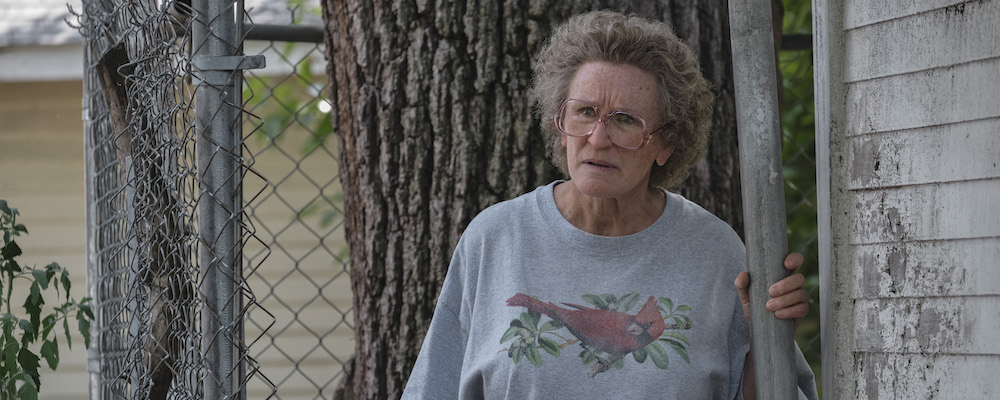Glenn Close Gives an Oscar-Worthy Performance in Ron Howard’s Otherwise Forgettable ‘Hillbilly Elegy’
Sandra Miska
A young law student at one of the most prestigious universities in the country has to come to terms with his past before he can move forward in “Hillbilly Elegy,” the latest feature from director Ron Howard. Based on the memoir of the same by venture capitalist J.D. Vance, the story follows then law student J.D. (Gabriel Basso, Owen Asztalos as a teen) during three pivotal days in 2011. Just when he is on the brink of landing a prestigious summer internship that would secure him the funds he would need to continue school, J.D. is forced to return to his depressed Ohio hometown to help his sister, Lindsay (Haley Bennett), deal with their mother, Bev (Amy Adams), a troubled woman who has just overdosed on heroin. Throughout the ordeal, J.D. flashes back to his childhood and reflects on the events and people who helped shape him, the most important person being his grandmother (Glenn Close), an indefatigable woman known here only as Mamaw.
Despite its title, only the opening scenes of “Hillbilly Elegy” take place in Appalachia, where J.D. spent many summers during his youth. Years ago, when Mamaw was 13 and pregnant, she and her husband, J.D.’s Papaw (Bo Hopkins), migrated from Kentucky to Ohio to seek a new life. Despite the change in location, the matriarch and patriarch drive home “hill people” values to their children and grandchildren, such as the importance of family honor. Their daughter Bev even grows up to graduate second in her high school class, only to go on and give birth at age 18, because in her world, as she puts it, pregnancy is just “something that happens to girls.”
Indeed, Bev is the most tragic of characters. Despite having two kids at a young age, she becomes a nurse, but puts her career in jeopardy when she becomes addicted to the pain meds she is supposed to be giving to her patients. She hops from man to man, hoping each one will provide a better life for her and her children. While Mom is prone to mood swings and has a hair-trigger temper, Mamaw is a stabilizing influence in the lives of her grandchildren, particularly J.D. Close, who has received the most Oscar nominations for an actress who has never won, is the best part of “Hillbilly Elegy” as she brings to life this tough old woman who is torn between enabling her daughter and doing what’s right. In one particularly emotional scene, Mamaw, who always strives to set an example for her grandchildren, despite what mistakes she may have made in her own past, tells J.D. he needs to give Bev the clean urine she needs to pass a drug test and save her nursing license.
Howard, along with screenwriter Vanessa Taylor, seems to set out to explore how dysfunctional behaviors and dynamics play out in families, but so much of what is shown feels exaggerated. While Adams is a fine actress, she often finds herself at the center of some of the more ridiculous scenes, such as when J.D. flees after an explosive argument that begins when the teen basically calls his mother a slut and a bitch that escalates to her pummeling him in the backseat of her car.
While those who have been the first in their family to attend a more elite institution of higher learning will certainly relate to some of what J.D. goes through as he navigates an Ivy League world — particularly when it comes to his struggle with financial aid — even some of those scenes feel silly. In one cliché-ridden scene, he calls his more cultured girlfriend (Freida Pinto) in a panic while in the middle of an upscale dinner party, confused by the numerous forks and spoons that have been set before him.
If it wasn’t for Close, “Hillbilly Elegy” would be another forgettable Oscar bait movie, but the seasoned actress goes above and beyond to deliver an impressive performance that alone makes the film worth the Netflix view.
“Hillbilly Elegy” releases Nov. 11 in select cities and begins streaming Nov. 24 on Netflix.

